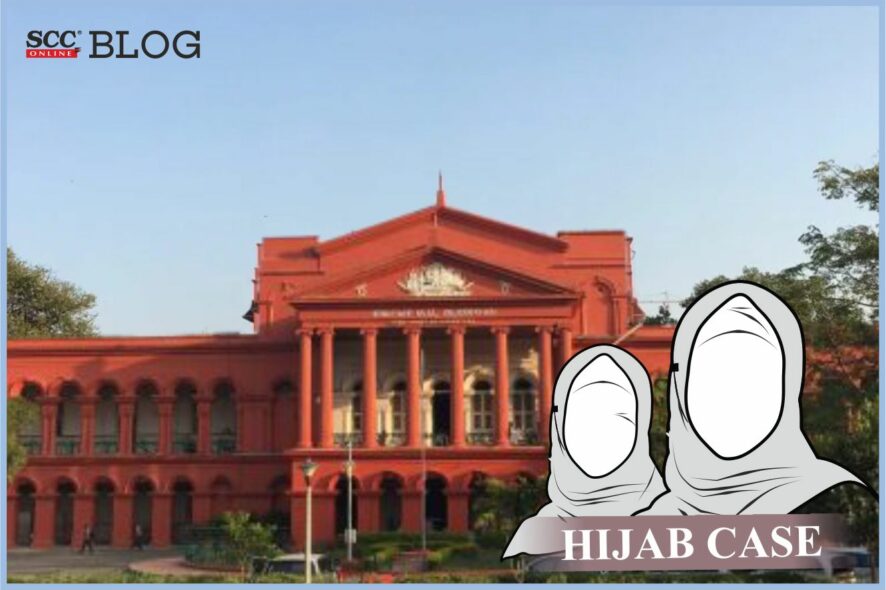Karnataka High Court: While expressing that, “Endless agitations and closure of educational institutions indefinitely are not happy things to happen”, the Bench of Ritu Raj Awasthi, CJ and Krishna S Dixit and JM Khazi, JJ., restrained all the students regardless of their religion or faith from wearing saffron shawls (Bhagwa), scarfs, hijab, religious flags or the like within the classroom, until further orders.
Court also remarked that, “Whether wearing of hijab in the classroom is a part of essential religious practice of Islam in the light of constitutional guarantees, needs a deeper examination.”
Petitions were filed challenging the insistence of certain educational institutions that no girl students shall wear the hijab (headscarf) whilst in the classrooms.
Some of the petitions raised challenges to the Government Order dated 5-2-2022 which directed the college Development Committees all over the State to prescribe ‘Student Uniform’, presumably in terms of Rule 11 of Karnataka Educational Institutions (Classification, Regulation & Prescription of Curricula, etc.) Rules, 1995.
Vide an order dated 9-2-2022, Single Judge, Krishna S. Dixit, J., referred the cases to Chief Justice to consider if the said matters could be heard by a Larger Bench ‘regard being had to enormous public importance of the questions involved’. Accordingly, the Special Bench was constituted.
Analysis and Decision
High Court was pained by the ongoing agitations and closure of educational institutions since the past few days, especially when this Court is seized off this matter and important issues of constitutional significance and of personal law are being seriously debated.
“…ours is a country of plural cultures, religions & languages. Being a secular State, it does not identify itself with any religion as its own. Every citizen has the right to profess & practise any faith of choice, is true.”
Further, the Court added that the above stated right not being absolute is susceptible to reasonable restrictions as provided by the Constitution of India.
“Ours being a civilized society, no person in the name of religion, culture or the like can be permitted to do any act that disturbs public peace and tranquility.”
Concerned with the timelines of admission to higher studies/courses, Bench stated that the elongation of academic terms would be detrimental to the educational career of students.
Hoping and trusting all stakeholders and the public at large to maintain peace and tranquility, Court expressed that the interest of students would be better served by their returning to the classes than by the continuation of agitations and consequent closure of institutions.
Therefore, the High Court requested the State Government and other stakeholders to reopen the educational institutions and allow the students to return to the classes at the earliest.
Lastly, the Court clarified that the present order/direction shall be confined to such institutions wherein the College Development Committees have prescribed the student dress code/uniform.
For further consideration, the matters were listed on 14-2-2022. [Resham v. State of Karnataka, WP No. 2347 of 2022, decided on 10-2-2022]
Note: Proceedings are still going on in the present case.
Advocates before the Court:
For the petitioners:
Senior Advocates, Sanjay Hegde and Devadatt Kamat



Wearing hijab or saffron scarf should stop at the gate of a school. Uniforms ensure all students are not identified to be in one religion or another.
If your religion comes in the way of your education then you don’t deserve education , be happy in your place of worship and let some other deserving student take your place.
No religion encourages intolerance except when vested interpretation is given by the self appointed agents of god